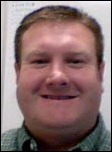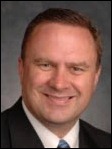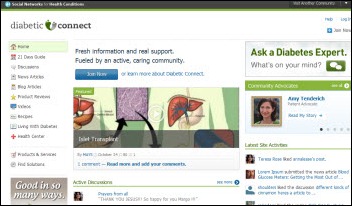RE: Surescripts survey finds that more than half of of patients have experienced delays or disruption in getting their prescriptions…
News 1/4/12
Top News

The District of Columbia, armed with $1.06 million in ARRA money, issues an RFP for an HIE technology platform. Bids for the one-year contract are due on January 13. The District decided to support the simpler Direct Project rather than a traditional HIE last year, putting the DC RHIO, which was expecting to get the grant money, out of business.
Reader Comments
![]() From Sunshine: “Re: new hire. Mike Mieure from Sunquest and Misys is the director of IS for Vitera Healthcare.” Confirmed via LinkedIn.
From Sunshine: “Re: new hire. Mike Mieure from Sunquest and Misys is the director of IS for Vitera Healthcare.” Confirmed via LinkedIn.
![]() From Tipsy: “Re: tips for meeting with reporters. Joseph Goedert has some great advice for vendors scheduling meetings with the press. My personal favorite: don’t send your marketing manager to talk to the reporter.” Mr. H does far more interviews than I do, but I am sure that if anyone attempted to give us a lesson on HITECH basics, we’d be making fun of them later. If you handle media relations for a vendor or PR firm, do yourself a favor and give Joe’s blog post a quick read.
From Tipsy: “Re: tips for meeting with reporters. Joseph Goedert has some great advice for vendors scheduling meetings with the press. My personal favorite: don’t send your marketing manager to talk to the reporter.” Mr. H does far more interviews than I do, but I am sure that if anyone attempted to give us a lesson on HITECH basics, we’d be making fun of them later. If you handle media relations for a vendor or PR firm, do yourself a favor and give Joe’s blog post a quick read.
![]() From AnotherDave: “Re: Dr. Jayne’s 1/2/12 post, What Gets Measured Gets Managed. To quote Nick D’Onofrio, ‘You can expect when you inspect.’” Dr. Jayne outdid herself with her post this week, which is getting tweeted and mentioned all over the place. It was informative while being fun to read. She enjoys using reader feedback for future posts, so if you have something you’d like her to write about or comment on, e-mail her.
From AnotherDave: “Re: Dr. Jayne’s 1/2/12 post, What Gets Measured Gets Managed. To quote Nick D’Onofrio, ‘You can expect when you inspect.’” Dr. Jayne outdid herself with her post this week, which is getting tweeted and mentioned all over the place. It was informative while being fun to read. She enjoys using reader feedback for future posts, so if you have something you’d like her to write about or comment on, e-mail her.
![]() From Pyorrhea, IL: “Re: a second Judy Faulkner article. Does this include any new information, or is it just the same thing over again?” The first article seemed merely politically biased and sloppy with facts, but the second one by the same author ventures into pure nut-job territory, claiming “a de facto alliance between Epic and the Service Employees International Union” because some of Epic’s hospital customers employ SEIU-organized labor, which is hardly shocking given that Epic’s core customer base is academic medical centers in big cities. I have one positive comment about the article: it was short.
From Pyorrhea, IL: “Re: a second Judy Faulkner article. Does this include any new information, or is it just the same thing over again?” The first article seemed merely politically biased and sloppy with facts, but the second one by the same author ventures into pure nut-job territory, claiming “a de facto alliance between Epic and the Service Employees International Union” because some of Epic’s hospital customers employ SEIU-organized labor, which is hardly shocking given that Epic’s core customer base is academic medical centers in big cities. I have one positive comment about the article: it was short.
HIStalk Announcements and Requests
![]() Mr. H seems to have survived without my assistance last week. No surprise, of course, but I like saying it so he’ll take a moment to reflect on how much more fun it is to have me around pinging him with e-mails all day. In my absence, I have noticed almost all our sponsors have now replaced their animated ads, giving the site an almost Zen-like peacefulness (thank you, sponsors.) Now that I am back, Mr. H and I are heads down in our HIMSS planning and are excited about a couple of new fun projects in the works. In addition to the more serious stuff, we are addressing details for the annual Inga Loves My Shoes contest, as well as the crowning of the HIStalk King and Queen for the best-dressed HIStalkapalooza party-goers. I predict an exhaustingly good time will be had by all.
Mr. H seems to have survived without my assistance last week. No surprise, of course, but I like saying it so he’ll take a moment to reflect on how much more fun it is to have me around pinging him with e-mails all day. In my absence, I have noticed almost all our sponsors have now replaced their animated ads, giving the site an almost Zen-like peacefulness (thank you, sponsors.) Now that I am back, Mr. H and I are heads down in our HIMSS planning and are excited about a couple of new fun projects in the works. In addition to the more serious stuff, we are addressing details for the annual Inga Loves My Shoes contest, as well as the crowning of the HIStalk King and Queen for the best-dressed HIStalkapalooza party-goers. I predict an exhaustingly good time will be had by all.
![]() It’s the New Year, so it’s time for HIStalkapalooza signups. Our amazingly gracious, creative, and fun event sponsor ESD has been working tirelessly for months in planning a memorable Las Vegas event for you. It’s at First Food & Bar in The Shoppes at the Palazzo (ESD bought the whole place out for the evening) on Tuesday, February 21 at 6:30 p.m. ESD is a consulting firm, so let’s go over the deliverables. Great food – check. An award-winning bar plus specialty drinks such as the IngaTini, the Mr. H Incognito, and the ESD Activation Sensation – check. Fun contests involving shoes and people dressing up – check. A special performance by Elvis – check. And of course, Jonathan Bush and the HISsies – check and mate. Click the graphic above, the button to your right, or here to request an invitation. If we get fewer requests than we have capacity, then beautiful – everybody who signs up will get an e-mailed invitation. If we’re overbooked (which has happened every year so far, and often quickly), we’ll invite the number of folks we can handle. HIStalkapalooza is held in honor of those involved with HIStalk, HIStalk Practice, and HIStalk Mobile in any way (reader, sponsor, contributor, etc.) and we gratefully acknowledge the support of ESD in making it possible. More to come once we get the signups finished.
It’s the New Year, so it’s time for HIStalkapalooza signups. Our amazingly gracious, creative, and fun event sponsor ESD has been working tirelessly for months in planning a memorable Las Vegas event for you. It’s at First Food & Bar in The Shoppes at the Palazzo (ESD bought the whole place out for the evening) on Tuesday, February 21 at 6:30 p.m. ESD is a consulting firm, so let’s go over the deliverables. Great food – check. An award-winning bar plus specialty drinks such as the IngaTini, the Mr. H Incognito, and the ESD Activation Sensation – check. Fun contests involving shoes and people dressing up – check. A special performance by Elvis – check. And of course, Jonathan Bush and the HISsies – check and mate. Click the graphic above, the button to your right, or here to request an invitation. If we get fewer requests than we have capacity, then beautiful – everybody who signs up will get an e-mailed invitation. If we’re overbooked (which has happened every year so far, and often quickly), we’ll invite the number of folks we can handle. HIStalkapalooza is held in honor of those involved with HIStalk, HIStalk Practice, and HIStalk Mobile in any way (reader, sponsor, contributor, etc.) and we gratefully acknowledge the support of ESD in making it possible. More to come once we get the signups finished.
Here’s some background about ESD (they didn’t ask me to talk them up, but it’s the least I can do considering they’re paying for HIStalkapalooza.) The Toledo, OH consulting firm provides expertise that includes clinical transformation, go-live support, legacy system maintenance, staff augmentation and training, system optimization, and help with ICD-10 and Meaningful Use projects. Clients often (always?) need healthcare experience and workflow expertise that’s way over the head of freshly minted vendor implementers. That’s where ESD’s expert clinical consultants can save the day, helping CIOs sleep at night by reinforcing their front lines to complete projects, generate ROI, and optimize processes. Founder and President Joe Torti started the company as a solo consultancy in 1990 and has grown it to over 400 clinical IT consultants (nurses, physicians, pharmacists, etc.) and 30 corporate employees. If you’ve been around awhile, you’ll no doubt recognize some of the management team names as I did: Joe Mason, David Tucker, and Dan Oberle, to name a few. ESD not only brings you HIStalkapalooza 2012, but is also a Platinum Sponsor of HIStalk. I greatly appreciate the ongoing support of ESD.
Acquisitions, Funding, Business, and Stock
![]() Chicago-based solar products company SoCore Energy LLC raises $3 million in an equity offering. Among its investors is an investment fund run by Michael Ferro (Merge Healthcare). The company’s chairman and co-founder is Allscripts CEO Glen Tullman. I Googled hoping to find that Epic’s mammoth solar installation used solar panels from SoCore, but nothing came up, dashing my hopes for perfect irony.
Chicago-based solar products company SoCore Energy LLC raises $3 million in an equity offering. Among its investors is an investment fund run by Michael Ferro (Merge Healthcare). The company’s chairman and co-founder is Allscripts CEO Glen Tullman. I Googled hoping to find that Epic’s mammoth solar installation used solar panels from SoCore, but nothing came up, dashing my hopes for perfect irony.
Sales
San Jacinto Memorial Hospital (TX) selects PerfectServe’s clinical communication and information delivery platform.
The Premier Healthcare Alliance awards a group purchasing agreement to Authentidate for its Electronic House Call Kiosk and Interactive Voice Response solutions.
Stanford Medical Center (CA), HealthEast (MN), Oakwood Healthcare, and McLaren Healthcare (MI) prepare for the ICD-10 deadline by utilizing OptumInsight’s A-Life Medical computer-assisted coding.
Albany Area Primary Health Care (GA) selects eClinicalWorks EHR suite for its 14 locations.
MedQuist hires Michael Raymer as SVP of solutions management. He was previously general manager of Microsoft’s Health Solutions Group.
Announcements and Implementations
Tuomey Healthcare System (SC) partners with Advanced ICU Care to deliver remote tele-ICU monitoring by intensivists and critical care specialists.
Regional Health Services of Howard County (IA) launches Cerner at its 25-bed acute care hospital.
Canton-Potsdam Hospital (NY) begins installation of MEDITECH 6.0.
AirStrip Technologies earns CE Mark certification for its FDA-approved mobile patient monitoring applications, allowing them to be sold in Europe and other areas.
Intelligent InSites integrates the TempSys Fetch real-time locating technology into its RTLS system. The InSites RTLS software solution works with several sensing systems, including active and passive RFID, ultrasound, WiFi, and ZigBee.
Pike County Memorial Hospital (MO) goes live on McKesson Paragon, earning the hospital a story in the local paper.
George C. Grape Community Hospital (IA) will hold a Virtual Ribbon Cutting next week to celebrate the completion of its EHR implementation and Meaningful Use attestation. The 25-bed hospital had to deal with Missouri River flooding through the summer as it accelerated its Meaningful Use timelines as a beta site for Healthland’s Centriq small-hospital EHR.
Government and Politics
Washington’s state prescription database goes live, but previously supportive doctors and pharmacists line up against it when the US Department of Justice tells the state not to expect to get federal money for the $530K annual operating costs. State health officials ask lawmakers to remove the portion of the law that bans charging providers for its use, which would entail yearly per-provider charges of $11 to $15.
In Canada, the leader of Ontario’s democratic party calls for a hospital CEO salary cap of $418K – double the premier’s salary — after hospitals release their compensation contracts following a ruling that they are covered by freedom of information laws.
Other
The US Patent and Trademark Office issues a patent to DR Systems for technology that tracks the resolution (or other parameter) for a displayed medical image.
Indiana University Health Physicians misses its 1,200-physician year-end employment target by 350, with some of the slowdown attributed to physician delays in committing to a common EMR and approving common treatment protocols.
Joslin Diabetes Center (MA) partners with Alliance Health Networks to participate in that company’s Diabetic Connect social network.
Sponsor Updates
- Phoenix Children’s Hospital shares how deployment of the Vocera wireless communications solution has improved communication in its NICU.
- NextGate profiles Hartford Hospital (CT)and its use of NextGate’s matching technology to identify patients in Connecticut’s HIE.
- Besler Consulting announces the general availability of BVerified Transfer DRG and BVerified IME proprietary solutions.
- Concerro adds VLOG, a video blog option, to its Concerro University client learning center.
- Intellect Resources is holding Big Break New Orleans on January 21, a one-day audition for folks who want to help Ochsner Health System implement Epic as trainers.
- Independence Blue Cross chooses Kony Solutions as its mobile application platform.
The Iowa Caucuses and the Stakes for Healthcare
By Donald Trigg
How should we feel about an anonymous force driving US policy? Does it serve our interests to have a beef-loving sovereign dictating our national conversation? Should a single player carry such outsized influence?
We are talking, of course, not about Mr. HIStalk, but the first-in-the-nation caucuses this evening (Tuesday) in Iowa. And in the less harried first days of the New Year, a moment offers itself for a primer on the quadrennial contest and a short exposition on how it might inform the health policy dialogue this fall.
Forty years ago, an obscure McGovernite orchestrated an early start date for the Iowa caucuses. Four years later, a peanut farmer named Jimmy Carter leveraged a “win” (finishing second to uncommitted) to vault to national prominence, a party nomination, and then the White House. Iowa’s outsized role in the nominating process has been set ever since.
The number of delegates at stake in Iowa toward the 1,143 needed for nomination is modest. GOP aspirants are looking, instead, for what George H.W. Bush in 1980 called the “Big Mo.” In our vernacular, Iowa is not a supplier of choice designation. It is a down select.
Indeed, since 1972, the eventual GOP nominee has finished in the top three in Iowa with only one exception. But unlike the definitively predictive South Carolina primary, Iowa does not decide the GOP nominee. It is the “winnower” of the field.
The mechanics of the caucus process are straightforward. Voters gather in roughly 800 locations, typically in a church basement or a high school gym. After electing a temporary chair and a secretary to record the proceedings, Republicans rise to speak on behalf of their preferred candidate. Then, votes are cast. The results are aggregated and a late evening winner is declared.
If the process is fairly unambiguous, the fate of the six candidates contesting Iowa is less clear-cut. Historically, the GOP has nominated by primogeniture — falling in lockstep behind the next person in line. The 2012 race has been marked from the outset by the absence of an overwhelming front-runner.
Instead, the so-called Exhibition Season has seen a series of volatile swings from candidate to candidate in an elusive search for an alternative to former Massachusetts Governor Mitt Romney. Michelle Bachman. Rick Perry. Herman Cain. Newt Gingrich. Now, we are seeing a late “Santorum Surge” that may put the former PA Senator within striking distance this evening.
It has been said that there are only three tickets out of Iowa. Romney, Paul, and Santorum appear to be clutching them, according to the final Des Moines Register poll. But with 41 percent indicating that they could still change their mind, the Register’s Kathie Obradovich rightly characterized the race as “a moving target.”
The stakes for healthcare are large. David Blumenthal wrote last month in the New England Journal of Medicine, “The 2012 election will be the most important in the history of the health care system.” For all the potential implications in 2013 and beyond, however, the topic has featured only modestly, even comically, thus far.
We had, to the chagrin of public health advocates, Herman Cain advisor Mark Block silently smoking into the camera –reminding us that a 20-something staffer, a video camera, and free time are the campaign equivalent of whiskey, car keys, and teenage boys. We had Romney’s Massachusetts bill, and its common features with the Accountable Care Act, as consistent debate fodder. And we had the criticism of Gingrich amid his Q4 rise for his paid advocacy through the Center for Health Transformation to his vocal backing of Part D in 2004. But neither deep policy substance nor deep debate has featured to date.
One reason, beyond the constraints of the modern campaign, is that the US economy looms so large. An NBC/Facebook poll of early state voters out Sunday put the economy at 59 percent as the top voter concern ,with the federal deficit at 19 percent and with healthcare a distant third at just 11 percent. There is little reason to think that mix will shift this autumn.
The impact of that framing for healthcare finance is that the “second phase” debate will be centered almost exclusively around cost and predominately within the context of the current FFS model. We are headed toward a moment akin to the 1997 Budget Act and it may come as soon as 113th Congress.
But first we will need a GOP standard-bearer. Iowa, “the purest of prairie states,” is an opening step in that drama. It is a good and decent place where Winenrenner properly wrote the politics are “clean and competitive” and, just like HIStalk, “the arena is fair and open.”
Donald Trigg is chief revenue officer for CodeRyte. He worked for then-Governor George W. Bush during the 2000 presidential cycle in Austin, TX. He has traveled to all 99 counties in Iowa, suffering chilly winds and an unsettling amount of chicken fried steak.
Contacts
Mr. H, Inga, Dr. Jayne, Dr. Gregg.












That article is a hoot. The comment about Gino Clausen is correct. I wonder if they still tell that story to the youngsters late at night in the warrooms….
I was very confused reading Donald Trigg’s piece as I didn’t understand why single payer had so much influence among Iowa Republicans, The I went back and realized I’d missed an “L” — too much looking at everything with health care-tinted glasses
I do sympathize with his late 1999 early 2000 experience. I spent election day in 2004 in Cedar Rapids volunteering for the other (losing) side and I thought 2 days was plenty….
of course Mike Mieure has moved to Vitera healthcare. Makes perfect sense. That is where his wife Mary Mieure (former sunquest) and Rob Smalling (former Sunquest) went to do start doing their slashing of (senior) personnel. Hold on Vitera employees…It’s Sunquest dejavu 2008
Hoboken University Medical Center chooses MEDITECH 6.0 to replace their struggling Medshpere OpenVista EMR.